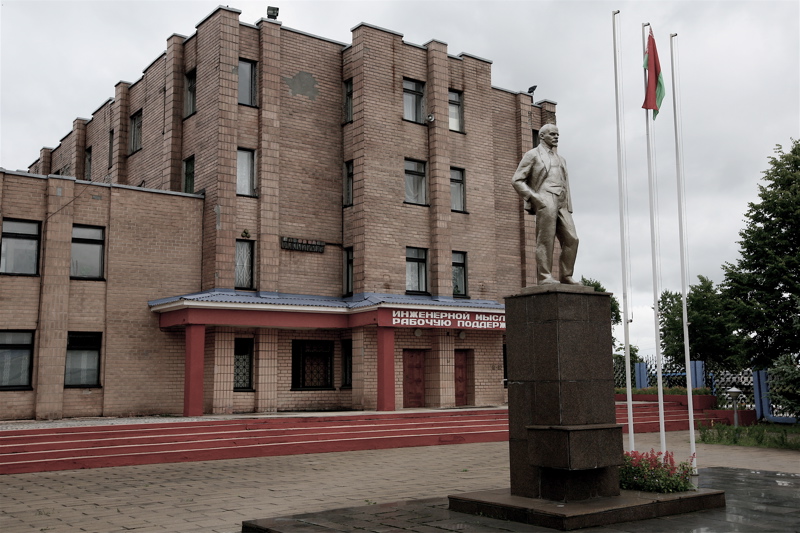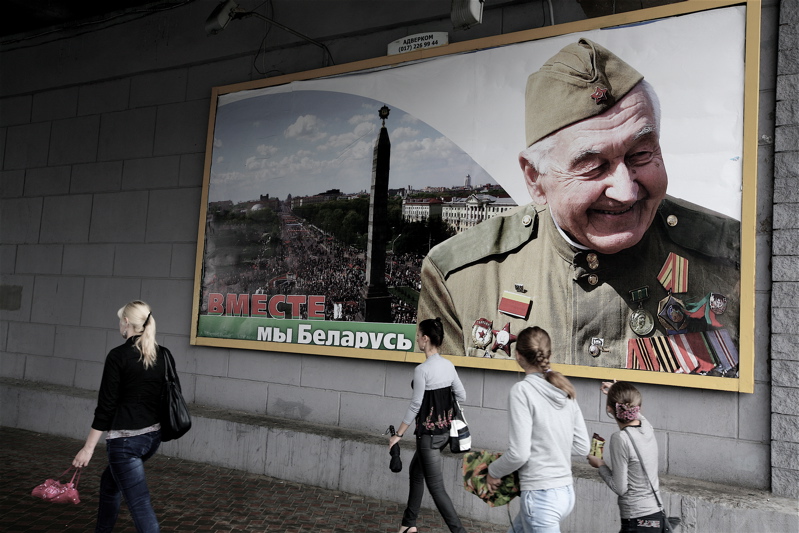
Ordinary dictators like applause. These days Alyaksandr Lukashenka, the demagogic and authoritarian president of Belarus, cannot stand it. Every Wednesday a few hundred people come out on the streets of Belarusian cities and wordlessly clap their hands. They may not shout slogans, but everybody knows what it is they are silent about.
Unlike the thousands-strong protest last December brutally put down by Mr Lukashenka, the clapping protests are modest in scale. And though their organisers talk of "a revolution through social networks" their real point is to demonstrate the protesters' courage and Mr Lukashenka's paranoia. Each Wednesday plain-clothed thugs with earpieces swarm the streets of Minsk dragging people out of crowds and pushing them into security vans parked in side streets with their licence plates covered.
During celebrations of Belarus's independence day on July 3rd, the police said that any applause other than to war veterans would be considered an offence. So nobody applauded Mr Lukashenka's combative speech. But even those, including journalists, who just gathered at one of the city's squares were arrested.
Anatoly Lebedko, an opposition leader who spent several months in a KGB cell in Minsk after December's election, says Mr Lukashenka has lost the support of most of the population and also Russia's unconditional backing. His popularity rating has plunged from 53% in December to 29% last month, according to an independent opinion poll.
This is not surprising. The economy is teetering on the brink of collapse. With inflation hitting 35% and the currency having lost half its value, most people feel a lot poorer. There are restrictions on the sale of hard currency. People are queuing for weeks to change Belarusian roubles. And though fear and an inured tolerance of hardship tend to stifle protests, there are reports of strikes at some Belarusian plants.
The country's Soviet-style command economy was never efficient and could be sustained only by foreign credit and huge Russian subsidies in the form of cheap energy and the ability to buy discounted Russian oil and sell on refined products at a markup. In the past five years Russia's subsidy has fallen from the equivalent of 20% of GDP to only 7%.
But it was last year's election that made the situation critical. To bribe voters, Mr Lukashenka raised salaries and social spending. State firms went on a borrowing spree. After violently suppressing protests and taking many political prisoners, Mr Lukashenka cut Belarus off from Western support. Leonid Zlotnikov, an economist, says Belarus needs to find monthly payments of over $1 billion to service its debts. Its foreign-exchange reserves are down to a month's worth of imports. "The economy is choking," Mr Zlotnikov says. And the Kremlin, which gave Mr Lukashenka a boost just before the election and recognised its result despite the violence, is not rushing to the rescue—albeit for cynical and pragmatic reasons.
Having spent $50 billion propping up Mr Lukashenka over the past decade, the Kremlin now wants something back, such as gas pipelines, perhaps, or refineries and chemical plants. Alexei Kudrin, Russia's finance minister, has said that he would agree to a rescue credit line only if Belarus privatised assets worth $7.5 billion. Mr Lukashenka resists giving up economic control. But as Oleg Manaev, an independent sociologist, says, "Lukashenka's fate is no longer in his own hands".
The Kremlin may not want to topple Mr Lukashenka yet because it fears that, without him, Belarus could rush towards the West. He is also a useful bogeyman who makes Russia's own leaders seem more civilised and democratic. The Russian tactic, it seems, is to keep Mr Lukashenka just above the surface, occasionally dipping him in and then pulling him out to make sure he is still breathing. But if the Kremlin miscalculates and keeps Mr Lukashenka under a moment too long, it could inadvertently provoke a more serious revolt. Then the applause would become deafening.



